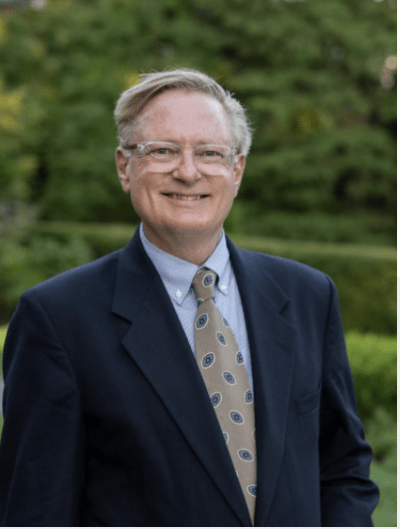The Alexander Hamilton Institute for the Study of Western Civilization (AHI) is pleased to announce that Timothy W. Burns, Professor of Political Science at Baylor University, will deliver the 16th Annual David Aldrich Nelson Lecture in Constitutional Jurisprudence on Constitution Day, September 17. The lecture, “Two Visions of a Constitution: Adams and Publius,” will be available on our website at 7:00 p.m.
There will be a reception for Dr. Burns with faculty and students at Baylor University on January 22nd at 4 p.m. at Dr. Burns’ house in Waco, Texas.
Dr. Burns describes his talk thus: “Recent debates over the American Constitution center on the intention of the founders with regard to class and race. This talk unearths a neglected aspect of these matters in the debates over the proposed constitution. It shows how and why John Adams (in his Constitutions of the United States) insisted that the American state constitutions correctly represented three “permanent” natural classes (democrats, aristocrats, monarchists) in their three branches of government. On the basis of Adams’ arguments, many Anti-Federalists came to view the constitution proposed in 1787 as maintaining a class-based system favoring an aristocratic class, including the slave owners of the American South. They argued against it, in favor of a constitution that would favor an allegedly virtuous, democratic yeoman class. The authors of The Federalist proposed a radically different understanding of the new Constitution. They presented the three branches of government as not at all class based, but as based on specific institutional functions. They saw economic classes as both fluid and capable of competing coalitions of interests. And they saw the potential for modern commerce to abolish classes and the many problematic passions that come with them, in a modern liberal, tolerant regime. The Federalists won.”
Dr. Burns, a senior fellow of AHI, taught at Hiram College, Texas State, Boston College, and Skidmore College before coming to Baylor University in 2013. For the 2022-23 academic year, he was the John and Daria Barry Visiting Research Scholar at Princeton University. His most recent book is Leo Strauss on Democracy, Technology, and Liberal Education (2021).
His other publications include Shakespeare’s Political Wisdom, which was awarded CHOICE Outstanding Academic Title Award, 2014; co-author (with Thomas L. Pangle, The Key Texts of Political Philosophy: An Introduction (2014); editor of Brill’s Companion to Leo Strauss’ Writings on Classical Political Thought (2015); co-editor (with Peter Lawler) of The Future of Liberal Education (2014); co-editor (with Bryan-Paul Frost) of Philosophy, History, and Tyranny: Re-examining the Debate Between Leo Strauss and Alexandre Kojève (2016); editor of Recovering Reason: Essays in Honor of Thomas L. Pangle (2010); and editor of After History? Francis Fukuyama and his Critics (1994). He has published in The American Political Science Review, The Journal of Politics, Interpretation, The Review of Politics, The Review of Metaphysics, Perspectives on Political Science, Polis, Logos, The Political Science Reviewer, Shakespeare Jahrbuch, and First Things. He has written on Homer, Plato, Thucydides, Xenophon, Aristophanes, Dionysius of Halicarnassus, St. Augustine, Shakespeare, Hobbes, Turgot and the Federalists, G.K. Chesterton, John Courtney Murry, Strauss, Putnam, modern liberal republican theory, and liberal education. He co-edits (with Thomas L. Pangle) Palgrave MacMillan’s “Recovering Political Philosophy” series, and he is editor-in-chief of Interpretation: A Journal of Political Philosophy.
The annual lecture honors Judge David Aldrich Nelson (1932-2010), a charter member of AHI’s board of directors. Judge Nelson was graduated from Hamilton College, 1954, valedictorian of his class. He attended Harvard Law School and read law as a Fulbright Scholar at Cambridge University, in England. President Ronald Reagan appointed him to the United States Court of Appeals for the Sixth Circuit in 1985. Judge Nelson took senior status in 1999 but continued to hear cases until he closed his chambers in 2006.
As a result of a gift from the family of Judge Nelson, AHI’s treasure room now houses some of his books and Hamilton College memorabilia.


Leave A Comment